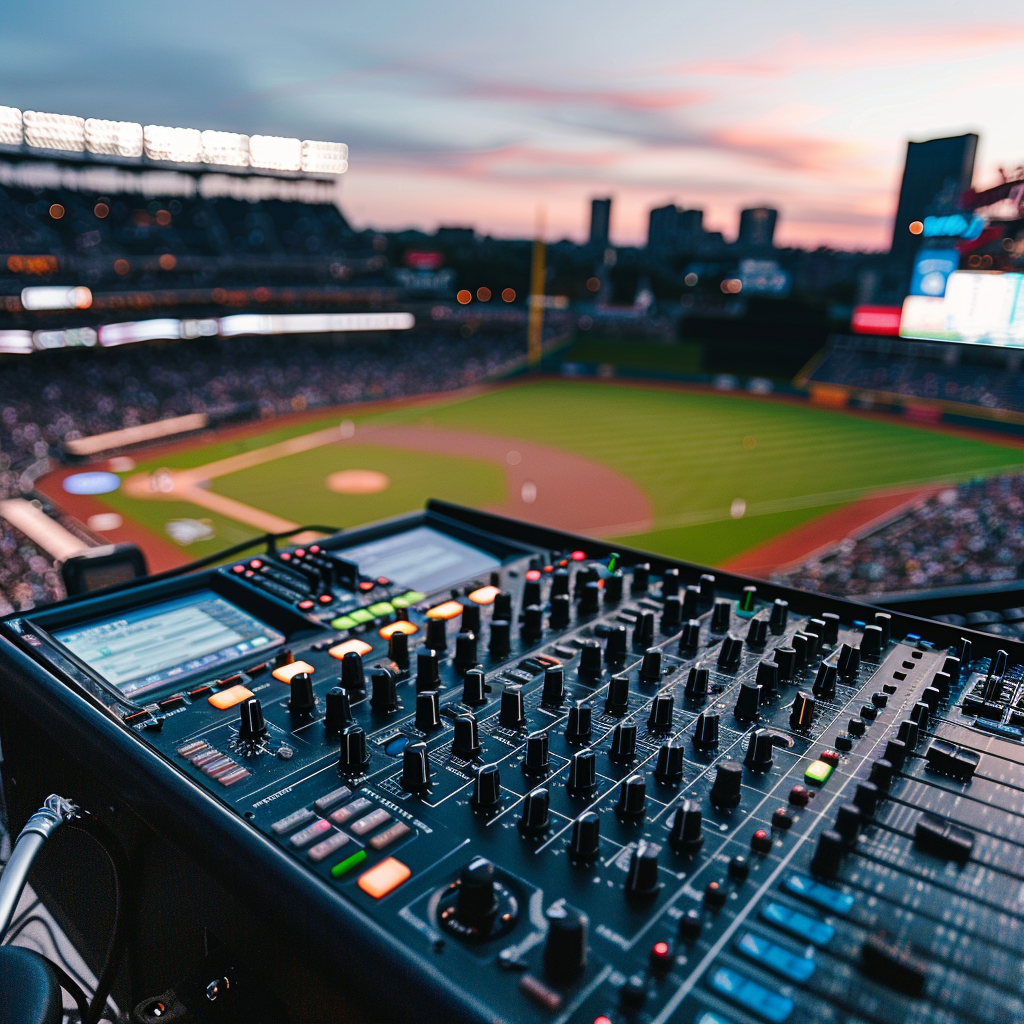DJs and sound engineers play an important role in creating the unique atmosphere at baseball games. They are responsible for the musical accompaniment that helps maintain the mood of the audience, mobilize the team and create unforgettable moments.
Key Responsibilities of DJs and Sound Technicians
DJs and sound engineers are responsible for preparing and performing musical accompaniment for matches. Their work includes several key aspects:
- Preparing a musical plan:
- Selection of music for various moments of the game, including team openings, breaks and key moments of the match.
- Creating playlists that match the theme and mood of the game.
- Audio work and equipment:
- Setting up sound equipment to ensure high-quality sound in the stadium.
- Control the volume level and sound quality during the match.
Preparing a musical plan and working with audio equipment requires care and professionalismso that each melody sounds perfect and matches the moment of the game.
Creating an atmosphere in the stadium
Music plays a key role in creating the atmosphere at baseball games. Properly selected musical compositions can significantly affect the mood of fans and players.
The selection of musical compositions is carried out taking into account various moments of the game. During breaks, energetic and uplifting tracks are played to keep the energy level high in the stadium. At key moments in a match, such as fielding or crucial innings, more intense and emotional songs are played to help create the appropriate atmosphere.
Music in the stadium also plays an important role in mobilizing fans. Energetic tracks and popular songs help spectators stay involved in the game, support their team and create noise that can influence the course of the match.
Interactive elements and interaction with fans
DJs and sound engineers actively interact with fans using various interactive elements and sound effects. This helps create a sense of community and inclusion, making attending a match more fun and memorable.
- Using sound effects and jingles:
- Short music and sound effects accompany important moments of the game, such as home runs or successful defenses.
- Jingles that support the team and lift the spirits of the audience.
- Organization of competitions and music quizzes:
- Interactive games and competitions for fans, which are held between innings.
- Music quizzes where viewers can guess tunes and win prizes.
Interactive elements help keep viewers highly engaged and create additional entertainment, making the match more interesting and exciting for everyone present.
Cooperation with the team and match organizers
DJs and sound engineers work closely with the team and match organizers to create the optimal musical accompaniment. Coordination with coaches and team managers allows you to better understand the needs and preferences of players and fans.
Different music plans can be developed for home and away games, taking into account the specifics of the stadiums and audiences. It is important that the music matches the team’s image and supports its strategy on the field.
Collaboration with the team and organizers helps create a holistic and harmonious atmosphere, which supports team spirit and fan involvement.
Technical aspects of the work of sound engineers
The technical side of the work of sound engineers is key to ensuring high-quality sound in the stadium. Setting up and monitoring audio equipment require high qualifications and experience.
Sound engineers are responsible for setting up microphones, speakers, and other audio equipment. They make sure that the sound is evenly distributed throughout the stadium so that all spectators can enjoy the music and commentary of the game.
Controlling volume levels and sound quality during a match is an important task. Sound engineers must respond quickly to any technical problemsto minimize their impact on the stadium atmosphere.
The role of DJs and sound technicians at baseball games goes far beyond simply providing the music. They create an atmosphere that makes games unforgettable, maintains the spirit of the team and fans, and also provides high-quality sound in the stadium. Their work is an integral part of successful matches and creating positive emotions among spectators.
DJs select music based on various factors such as the moment of the game, the mood of the fans and the preferences of the team. They try to select songs that will maintain an energetic and positive attitude, as well as match the events on the field.
Sound engineers need skills in setting up and monitoring audio equipment, knowledge of acoustics and sound systems, and the ability to quickly respond to technical problems. They must provide high-quality sound in the stadium so that all spectators can enjoy the music and commentary of the game.

